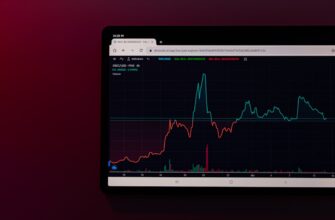How to Pay Taxes on Airdrop Income in South Africa: Your Essential Guide
Cryptocurrency airdrops have surged in popularity, offering South Africans free tokens for promotional purposes. But did you know SARS views most airdrops as taxable income? Navigating tax obligations for crypto windfalls can be complex. This comprehensive guide explains exactly how to declare and pay taxes on airdrop income in South Africa, helping you avoid penalties while staying compliant.
Understanding Airdrops and SARS Tax Rules
In South Africa, the South African Revenue Service (SARS) treats cryptocurrency as an intangible asset rather than currency. According to SARS’ Crypto Assets Tax Guide, airdrops are generally considered ordinary revenue if received through marketing activities or as rewards. This means:
- Airdrops are taxed at your marginal income tax rate (up to 45%)
- Tax applies when tokens are received, not when sold
- Failure to declare constitutes tax evasion with severe penalties
Exceptions exist for genuine gifts (rare in crypto), but most promotional airdrops qualify as taxable income under Paragraph (k) of the Gross Income definition in the Income Tax Act.
Step-by-Step: Calculating Tax on Airdrop Income
Follow this process to determine your tax liability:
- Record receipt date: Note the exact date you received the tokens
- Determine market value: Convert tokens to ZAR using exchange rates on receipt date (e.g., Luno or VALR closing price)
- Classify income type: Most airdrops fall under “Other Income” in tax returns
- Apply your tax rate: Add the ZAR value to your taxable income for the year
- Track subsequent sales: Capital Gains Tax may apply if token value increases when sold later
Example: Receiving 500 XYZ tokens worth R2,000 on receipt date adds R2,000 to your annual taxable income. If you’re in the 31% tax bracket, you’ll owe R620 in income tax.
Reporting Airdrop Income to SARS Correctly
Declare airdrop earnings during annual tax filing (typically July-November):
- Use ITR12 Income Tax Return for individuals
- Report under: Local Income > Other Income > Miscellaneous Income
- Maintain records for 5 years: Screenshots of airdrop, wallet transactions, exchange valuations
- File via eFiling or SARS branches before deadline
Pro Tip: Use crypto tax software like CoinTracking or Koinly to automate ZAR conversions and generate SARS-compliant reports.
Critical Mistakes to Avoid with Airdrop Taxes
- Ignoring small amounts: SARS requires declaration of ALL income, even minor airdrops
- Using incorrect valuation: Always use market value at receipt date, not when claiming or selling
- Missing deadlines: Late submissions incur 10% penalties plus interest
- Confusing CGT and income tax: Tax applies twice: income tax on receipt, CGT on future gains
- Poor record-keeping: Without transaction proofs, you risk disputes during SARS audits
FAQs: Paying Taxes on Airdrop Income in South Africa
Q: Are all crypto airdrops taxable in South Africa?
A: Yes, unless proven to be a genuine gift (rare). Marketing-related airdrops are always taxable as income.
Q: When do I pay tax – at receipt or when selling tokens?
A: You pay income tax on the token’s market value when received. If you sell later at a higher price, Capital Gains Tax applies to the profit.
Q: How do I value airdropped tokens with no market price?
A: Use the first verifiable market price after receipt. Document your valuation method for SARS.
Q: Can SARS track my crypto airdrops?
A: Increasingly yes. SARS uses blockchain analysis tools and requires exchanges to report user data. Non-compliance risks audits.
Q: What if I received airdrops worth under R500?
A: You must still declare them. SARS’ minimum reporting threshold doesn’t apply to miscellaneous income.
Q: Do I pay VAT on airdrop income?
A: No. SARS excludes cryptocurrencies from VAT, but income tax still applies.
Final Tip: Consult a crypto-savvy tax practitioner if handling substantial airdrops. With clear records and timely declarations, you can confidently navigate South Africa’s crypto tax landscape while avoiding costly errors.








